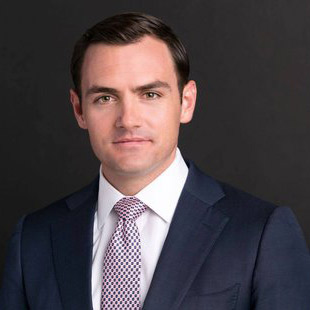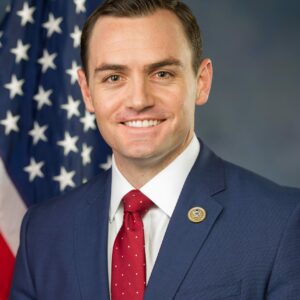How China Confronts Crisis
Examine three major hinge-points in China’s history & how China responds to crisis.
JULY 22–26, 2024
Washington, DC
America’s use of power in the world has long been entangled with dreams of world peace. In the settlements of both the First and Second World Wars, American statesmen worked to build international institutions that could resolve disputes between states as legal matters. In 1929, the U.S. Senate, through its lopsided ratification of the Kellogg-Briand Pact (there was only one dissenting vote, John J. Blaine of Wisconsin,) went so far as to ban war altogether. Ambitions of mutual disarmament drove Cold War policymakers in both Republican and Democratic administrations—and hopes for collective security, robust arms control, and in general, the beating of swords into ploughshares remain very much alive today.
Yet the bearers of such hopes are regularly mugged by geopolitical reality. To understand how liberal visions of peace through mutual understanding are undermined by human nature and by geography itself, and to organize our thinking about a realistic basis for America’s global policy, we will examine Nicholas Spykman’s classic geopolitical study America’s Strategy in World Politics. Building on the work of British geopolitical theorist Halford Mackinder, Spykman developed the idea that the key to global security was to be found in control of the Eurasian “Rimland,” an insight that has driven American grand strategy ever since, with varying degrees of self-consciousness. We will then apply the teachings of Spykman to understanding 2024’s endemic instability, from a land war in Europe to the effective closure of the Red Sea to the threat of Chinese expansionism in the Pacific. What does classical geopolitical analysis suggest for America’s actions today?
Mike Gallagher on Asian Geopolitics & Beyond
This course is part of our residential Security Studies Program. Fellows participate in morning seminars and meet prominent men and women in public life over afternoon and evening sessions. Up to 16 fellows will be selected.

Mike Gallagher served for four terms in the U.S. House of Representatives as Wisconsin’s 8th Congressional District representative. Previously, he served seven years on active duty in the U.S. Marine Corps, including two deployments to Iraq.

Mike Gallagher served for four terms in the U.S. House of Representatives as Wisconsin’s 8th Congressional District representative. Previously, he served seven years on active duty in the U.S. Marine Corps, including two deployments to Iraq. He also was the lead Republican staffer for the Middle East and Counterterrorism on the Senate Foreign Relations Committee and worked in the private sector at an energy and supply chain management company in Green Bay.
Mr. Gallagher was the honor graduate from The Basic School, the Marine Corps CI/HUMINT Basic Course, as well as the MAGTF Intelligence Officers Course. He earned a Ph.D. in International Relations from Georgetown University. He also earned a Master’s degree in Security Studies with honors from Georgetown and a Master’s of Science in Strategic Intelligence from National Intelligence University. He earned his Bachelor’s degree from Princeton University with a focus on Near Eastern Studies and Arabic.

Aaron MacLean is a senior fellow at Hudson Institute and the host of the School of War podcast. Previously, he was senior foreign policy advisor and legislative director to Senator Tom Cotton of Arkansas. Aaron served on active duty as a U.S. Marine for seven years, deploying to Afghanistan as an infantry officer in 2009–2010.

Aaron MacLean is a senior fellow at Hudson Institute and the host of the School of War podcast.
Previously, Mr. MacLean was senior foreign policy advisor and legislative director to Senator Tom Cotton (R-AR). He served on active duty as a United States Marine for seven years, deploying to Afghanistan as an infantry officer in 2009–10. Following his time in the operating forces, he was assigned to the faculty of the US Naval Academy, where he was the 2013 recipient of the Apgar Award for Excellence in Teaching.
Mr. MacLean received a B.A. in philosophy and the history of math and science from St. John’s College, Annapolis, and an M.Phil. (Dist.) in medieval Arabic thought from the University of Oxford. He has been a Boren Scholar and a Marshall Scholar and lives in Virginia, where he was born.
Readings:
Discussion Questions:
Readings:
Discussion Questions:
Readings:
Discussion Questions:
Readings:
Discussion Questions:
Readings:
Discussion Questions:

Daniel Blumenthal
Dan Blumenthal is a senior fellow at the American Enterprise Institute, where he focuses on East Asian security issues and Sino-American relations. Mr. Blumenthal has served in and advised the US government on China issues for more than a decade.

Vance Serchuk
Vance Serchuk is Executive Director of the KKR Global Institute and an Adjunct Senior Fellow at the Center for a New American Security. Prior to joining KKR, Mr. Serchuk served for six years as the senior national security advisor to Senator Joseph Lieberman (I-Connecticut).
Michael Doran
Michael Doran, an expert in U.S. policy toward the Middle East, radical Islam, and the Arab-Israeli conflict, is a Senior Fellow at the Hudson Institute. He has also held a number of senior U.S. government posts related to Middle East policy and strategic communication.

Mike Gallagher
Mike Gallagher served for four terms in the U.S. House of Representatives as Wisconsin’s 8th Congressional District representative. Previously, he served seven years on active duty in the U.S. Marine Corps, including two deployments to Iraq.

Aaron MacLean
Aaron MacLean is a senior fellow at Hudson Institute and the host of the School of War podcast. Previously, he was senior foreign policy advisor and legislative director to Senator Tom Cotton of Arkansas. Aaron served on active duty as a U.S. Marine for seven years, deploying to Afghanistan as an infantry officer in 2009–2010.
Henry Olsen
Henry Olsen, a senior fellow at the Ethics and Public Policy Center, studies and provides commentary on American politics. Mr. Olsen is an opinion columnist for The Washington Post, where he writes daily pieces focusing on politics, populism, foreign affairs and American conservative thought.

Flagg Taylor
Flagg Taylor is the Executive Director of the Center for Civics, Culture, & Society, at Miami University. His research specialty is in the history of political thought and American government, especially the question of executive power. He is Chair of the Academic Council of the Victims of Communism Memorial Foundation.

Lewis Libby
Lewis “Scooter” Libby is a distinguished fellow at the Foundation for Defense of Democracies. He has held several high level positions in the federal government related to his current work on national security and homeland security affairs. This included roughly a dozen years working in the White House, the U.S. Department of Defense, and the U.S. Department of State.
Paul Wolfowitz
Paul Wolfowitz is a scholar at the American Enterprise Institute. He spent more than three decades in public service and higher education. Most recently, he served as president of the World Bank and deputy secretary of defense.